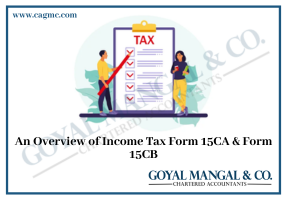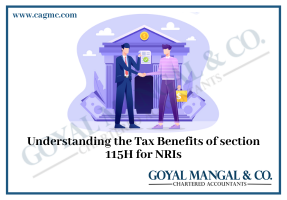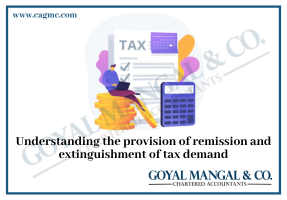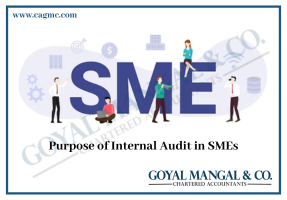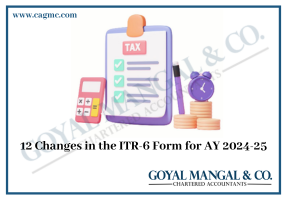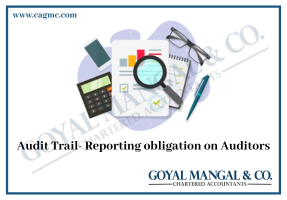
Set off and withholding of income tax refunds are two mechanisms used by the Income Tax Department to recover outstanding tax liabilities from taxpayers. In certain cases, the department may withhold the refund due to a taxpayer and use it to offset any outstanding tax liabilities. This article will explore the concept of setting off and withholding income tax refunds, the situations in which they can be used, and the implications for taxpayers. In this article, we will discuss the set-off and withholding of income tax refunds in certain cases.
|
Table of Contents |
What is Set Off?
Set off refers to the process of adjusting a refund or credit due to a taxpayer against any outstanding tax liabilities. This means that if a taxpayer has any outstanding tax liability, the Income Tax Department may use the refund due to the taxpayer to offset the liability. In this case, the refund amount is adjusted against the outstanding tax liability, and the taxpayer is only refunded the balance, if any, after the adjustment.
What is Withholding of Income Tax Refunds?
Withholding of income tax refunds refers to the process of holding back a refund due to a taxpayer by the Income Tax Department. This is done when the department has reason to believe that the taxpayer may have outstanding tax liabilities, and the refund due to the taxpayer can be used to offset the liability. The refund is withheld until the outstanding tax liability is paid in full or until the taxpayer agrees to set off the refund against the outstanding tax liability.
When can Set Off and Withholding of Income Tax Refunds be used?
Set off and withholding of income tax refunds can be used in certain situations, as outlined below:
- Outstanding Tax Liabilities: Set off and withholding of income tax refunds can be used when a taxpayer has outstanding tax liabilities, including tax demand notices, interest, and penalties.
- Disputed Tax Demands: If a taxpayer has disputed tax demands pending with the Income Tax Department or appellate authorities, the department may withhold the refund until the dispute is resolved.
- Tax Arrears Recovery: If a taxpayer has outstanding tax arrears, including tax demand notices, interest, and penalties, the Income Tax Department may withhold the refund to recover the arrears.
- Default in Filing Returns: If a taxpayer has not filed their tax returns for the relevant assessment year, the Income Tax Department may withhold the refund until the returns are filed and any outstanding tax liabilities are paid.
Implications for Taxpayers
Set off and withholding of income tax refunds can have significant implications for taxpayers. If the department withholds a refund due to a taxpayer, the taxpayer may face liquidity issues and may not have access to funds that they were expecting to receive. This can cause cash flow problems and affect the taxpayer’s ability to meet other financial obligations.
In addition, if the department uses the refund to offset an outstanding tax liability, the taxpayer may have to pay interest and penalties on the outstanding tax liability. This can result in an additional financial burdens for the taxpayer.
Cases for set-off and withholding of income tax refunds
As per Budget 2023, there are certain cases for set-off and withholding of income tax refunds. The changes below take effect on April 1, 2023-
- Section 241A of the Act deals with the withholding of refunds in certain cases. Under the section, where a refund becomes payable to an assessee under section 143 (1) and an assessment call is issued to him under section 143 (2), the Assessing Officer (AO) may withhold such refund till the date of making such assessment if he considers that providing compensation is likely to adversely affect income. Such detention may be made after recording the reasons for doing so and with the prior approval of the Chief Commissioner or the Commissioner and may be applicable for assessment years 2017-18 or later.
- Section 245 of the Act deals with the offsetting of residual tax returns. It provides that if a refund is found to be due to any person under any provision of the Act, the AO or other income-tax authorities referred to in this section may, in place of payment, set off part or all of the refund against any amount payable by that person, after, who informed her in writing of the proposed action.
- Both provisions overlap. It is therefore proposed to incorporate these two sections by substituting section 245 to provide that where under any provision of this Act a refund is payable to any person, the assessor or the Commissioner or the Chief Commissioner or the Chief Commissioner or the Principal Chief Commissioner may, in place of paying the refund, set off an amount, to be refunded, or any part of that amount, against any amount due under this Act by the person to whom the refund is due, after giving notice in writing to such person of the measures proposed to be taken under this section.
- It is also proposed to provide that if part of the refund has been set off under sub-section (1) or if no amount is set off and the refund becomes payable to the person, then the Assessing Officer having regard to the fact that in such case assessment or reassessment proceedings are in progress and providing refund is likely to adversely affect the income and may withhold the refund pending.
- It is also proposed to amend section 241A of the Act so that the provisions of that section cease to apply from 1 April 2023.
Final words
Set off and withholding of income tax refunds are important tools used by the Income Tax Department to recover outstanding tax liabilities from taxpayers. While these mechanisms can help the department recover tax arrears and reduce tax evasion, they can have significant implications for taxpayers. Therefore, taxpayers must ensure that they file their tax returns on time, pay any outstanding tax liabilities promptly, and resolve any tax disputes promptly to avoid any adverse consequences. It is also important for taxpayers to keep track of their tax refunds and follow up with the department if there are any delays in receiving the refund.

